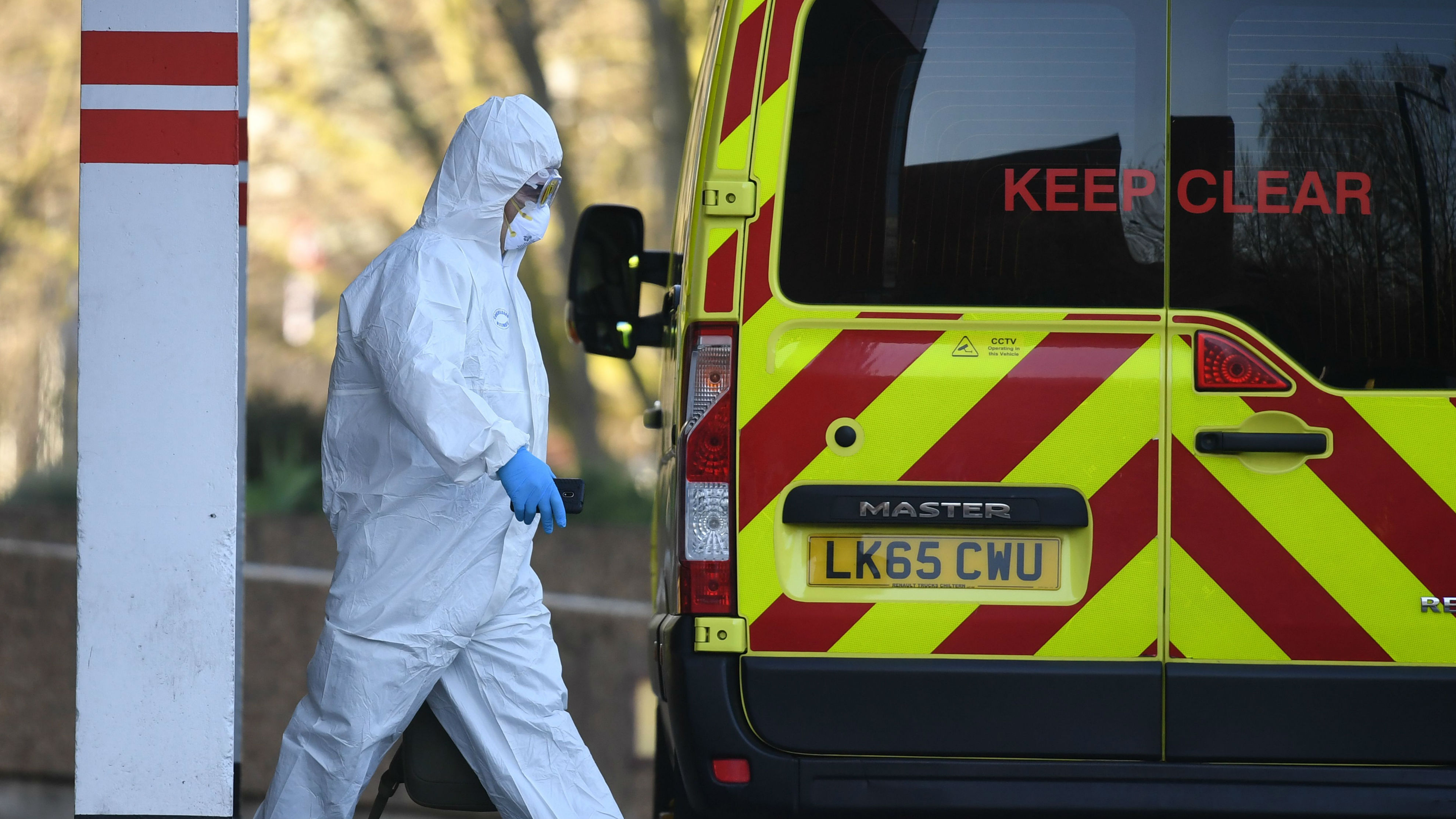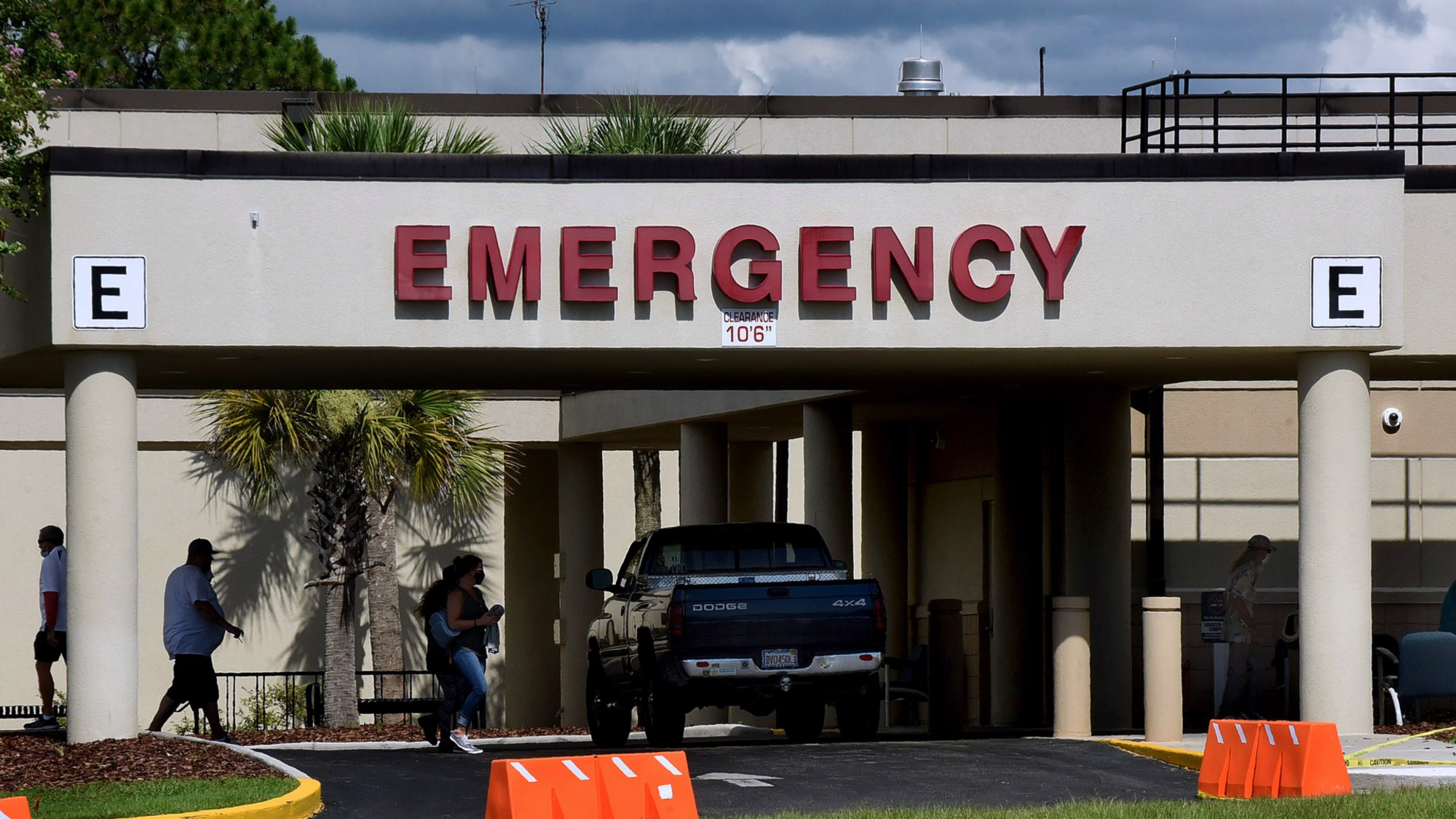Coronavirus: when hospital visitors are allowed
NHS clarifies exceptions for family and carers of vulnerable patients

A free daily email with the biggest news stories of the day – and the best features from TheWeek.com
You are now subscribed
Your newsletter sign-up was successful
The coronavirus pandemic has led to a near blanket ban on hospital visits across the country, but there are some exceptions to the rule.
NHS England has published a list of circumstances in which relatives might be allowed to visit their loved ones.
What is the current situation?
The Week
Escape your echo chamber. Get the facts behind the news, plus analysis from multiple perspectives.

Sign up for The Week's Free Newsletters
From our morning news briefing to a weekly Good News Newsletter, get the best of The Week delivered directly to your inbox.
From our morning news briefing to a weekly Good News Newsletter, get the best of The Week delivered directly to your inbox.
Last Wednesday, NHS England announced: “Visiting is suspended with immediate effect and until further notice.”
However, it also listed several “exceptional circumstances” where one visitor – who must be an immediate family member or carer – will be permitted to visit. These are:
- The patient you wish to visit is receiving end-of-life care.
- You are the birthing partner accompanying a woman in labour.
- You are a parent or appropriate adult visiting your child.
- You are supporting someone with a mental health issue such as dementia, a learning disability or autism, where not being present would cause the patient to be distressed.
–––––––––––––––––––––––––––––––For a round-up of the most important stories from around the world - and a concise, refreshing and balanced take on the week’s news agenda - try The Week magazine. Start your trial subscription today –––––––––––––––––––––––––––––––
The guidelines say potential visitors should “contact the ward or department in advance to discuss appropriate arrangements”.
A free daily email with the biggest news stories of the day – and the best features from TheWeek.com
“Your health, safety and wellbeing, that of our patients, communities and individuals and teams across the organisation remain our absolute priority,” the statement reads. “Please find other ways of keeping in touch with your loved ones in hospital, like phone and video calls.”
What is behind the decision?
The decision to limit visitors in hospitals was taken to reduce the spread of the new coronavirus, protecting vulnerable people receiving care as well as NHS workers.
According to the Health Service Journal, advocacy group John’s Campaign welcomed the national guidance on exceptions and said hospitals had been “too often making the assumption that a blanket ban was the safest course of action”.
The group said there had until now been an “unwillingness in some trusts to acknowledge the rights of people with these special needs and secondly the basic unfairness of different arrangements being in place in neighbouring trusts”.
The guidelines appear to have been brought in to alleviate fears that coronavirus patients are dying alone in hospital wards, their families having been prevented from visiting them.
But Dr Alison Pittard, dean of the Faculty of Intensive Care Medicine, told Sky News this week: “There have been reports that patients have been dying alone and I would like to reassure the public that no person will die in hospital alone.
“They may not have their loved ones next to them, but they will have healthcare workers – both doctors and nurses – and other members of staff by their side holding their hands and making sure that they are not alone when they die.”
-
 What are the best investments for beginners?
What are the best investments for beginners?The Explainer Stocks and ETFs and bonds, oh my
-
 What to know before filing your own taxes for the first time
What to know before filing your own taxes for the first timethe explainer Tackle this financial milestone with confidence
-
 The biggest box office flops of the 21st century
The biggest box office flops of the 21st centuryin depth Unnecessary remakes and turgid, expensive CGI-fests highlight this list of these most notorious box-office losers
-
 A Nipah virus outbreak in India has brought back Covid-era surveillance
A Nipah virus outbreak in India has brought back Covid-era surveillanceUnder the radar The disease can spread through animals and humans
-
 A real head scratcher: how scabies returned to the UK
A real head scratcher: how scabies returned to the UKThe Explainer The ‘Victorian-era’ condition is on the rise in the UK, and experts aren’t sure why
-
 How dangerous is the ‘K’ strain super-flu?
How dangerous is the ‘K’ strain super-flu?The Explainer Surge in cases of new variant H3N2 flu in UK and around the world
-
 Covid-19 mRNA vaccines could help fight cancer
Covid-19 mRNA vaccines could help fight cancerUnder the radar They boost the immune system
-
 The ‘menopause gold rush’
The ‘menopause gold rush’Under the Radar Women vulnerable to misinformation and marketing of ‘unregulated’ products
-
 The new Stratus Covid strain – and why it’s on the rise
The new Stratus Covid strain – and why it’s on the riseThe Explainer ‘No evidence’ new variant is more dangerous or that vaccines won’t work against it, say UK health experts
-
 Private equity firms might be causing more deaths in hospital ERs
Private equity firms might be causing more deaths in hospital ERsThe Explainer Deaths in ERs purchased by private equity firms rose 13%
-
 RFK Jr. vaccine panel advises restricting MMRV shot
RFK Jr. vaccine panel advises restricting MMRV shotSpeed Read The committee voted to restrict access to a childhood vaccine against chickenpox